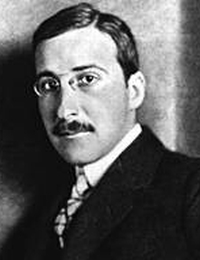Born in Vienna in 1881, Stefan Zweig was one of the most respected authors of his time. Foreseeing Nazi Germany's domination of Europe, Zweig left Austria in 1933. In 1941, following a successful lecture tour of South America and several months in New York, Stefan Zweig and his wife Lotte emigrated to Brazil. Despairing at Europe's future and feeling increasingly isolated, the Zweigs committed suicide together in 1942.Stefan Zweig was an incessant correspondent but as the 1930s progressed, it became difficult for him to maintain contact with friends and colleagues. As Zweig's correspondence all but ceased with the outbreak of World War II, little is known about his final years. Even less is known about Lotte Zweig, his second-wife, secretary and travel-companion. This book provides an analysis of the Zweigs' time together and for the first time reproduces personal letters, written by the couple in Argentina and Brazil, along with editorial commentary. Furthermore, Lotte finally emerges from her husband's shadows, with the letters offering significant insights into their relationship and her experience of exile.
"Davis and Marshall have filled a gap in Latin American literary history by presenting us with a picture of the last years of the famed author, cast adrift by the rise of Nazism and enforced exile. The letters of Stefan and Lotte Zweig cast a flickering light on the psyches of many Austrian and German Jews who, rejected by their homelands, were incapable of either adapting to a new home or of drawing sustenance from their Jewish origins. Aloof from the satisfactions of popular acclaim and paralyzed by guilt over their comfortable life in Brazil, the Zweigs broke through their emotional isolation with an act that sealed their unique place in literary history. Davis and Marshall create a coherent narrative from the episodic correspondence and bring the role of Lotte into view. But the Zweigs' brief sojourn in South America confirms the European boundaries to Stefan's oevre and his marginalization from Argentine, Brazilian, and Jewish history." -- Judith Laikin Elkin, Latin American Jewish Studies Association


